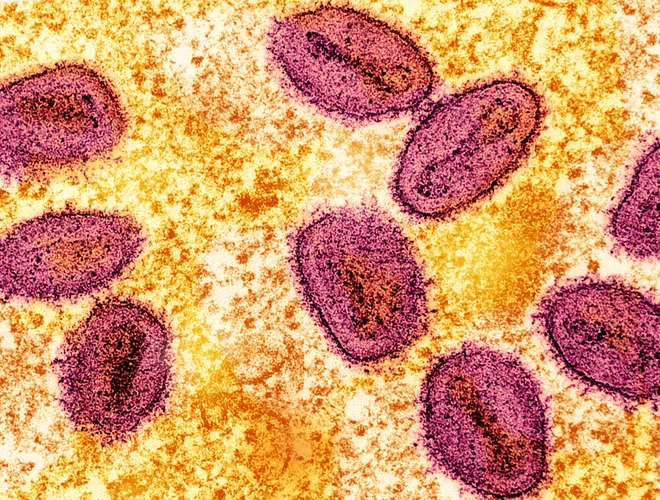In recent months, there has been increasing concern about the spread of a virus known as mpox. With new cases emerging, many people are wondering, “What exactly is Mpox virus?” and “Is the virus in the US?” This article will cover everything you need to know about mpox, including its symptoms, how it spreads, and what you can do to protect yourself.

What is Mpox?
Mpox, also known as monkeypox, is a viral disease caused by the mpox virus. It is similar to smallpox, though generally less severe. The disease was first identified in 1958 when two outbreaks occurred in colonies of monkeys kept for research, hence the name “monkeypox.” However, it’s important to note that the virus can also infect humans and other animals.
How Does Mpox Spread?
Mpox is a zoonotic virus, meaning it can be transmitted from animals to humans. The virus can spread through direct contact with the blood, bodily fluids, or skin lesions of infected animals. In humans, mpox can spread through close contact with an infected person, particularly through respiratory droplets, bodily fluids, or contaminated objects.
Human-to-human transmission is relatively rare but can occur in situations where there is close, prolonged contact. This could happen in households or healthcare settings where proper precautions are not taken.
What Are the Symptoms of Mpox?
The symptoms of mpox are similar to, but milder than, smallpox. They usually appear within 7 to 14 days after exposure to the virus. The most common symptoms include:
- Fever: A sudden onset of fever is one of the first signs of mpox.
- Headache: Severe headaches often accompany the fever.
- Muscle Aches: Muscle pain and general discomfort are common.
- Swollen Lymph Nodes: This is a distinguishing feature of mpox compared to smallpox.
- Chills: Patients may experience chills and shivering.
- Exhaustion: Fatigue and a general feeling of being unwell are also typical.
Within 1 to 3 days after the fever begins, the patient typically develops a rash, often starting on the face and then spreading to other parts of the body. The rash progresses through several stages—from macules (flat lesions) to papules (raised lesions), vesicles (fluid-filled lesions), pustules (pus-filled lesions), and finally scabs.
Is Mpox in the US?
Yes, mpox has been detected in the US. While the virus is more commonly found in Central and West African countries, recent years have seen cases emerging in other parts of the world, including the US. The spread to other regions is believed to be linked to international travel and the global movement of goods.
Health authorities in the US are closely monitoring the situation, and efforts are being made to contain the spread of the virus. It’s important to stay informed through credible sources and follow the guidance provided by health officials.
How is Mpox Treated?
Currently, there is no specific treatment for mpox. However, because mpox is related to the smallpox virus, the smallpox vaccine can provide protection against mpox as well. In fact, the vaccine is about 85% effective in preventing mpox infection.
For those who contract mpox, treatment is typically supportive. This means that healthcare providers focus on relieving symptoms and preventing complications. Patients with severe cases may require hospitalization.
How Can You Protect Yourself from Mpox?
While the risk of contracting mpox remains low, especially outside of Africa, there are several precautions you can take to protect yourself:
- Avoid Close Contact: If you are in an area where mpox is present, avoid close contact with people who are sick or with animals that could carry the virus.
- Practice Good Hygiene: Regular handwashing with soap and water can help reduce the risk of infection. Use hand sanitizer if soap and water are not available.
- Handle Animals with Care: If you are handling animals, particularly wild animals or those that appear sick, use gloves and other protective clothing.
- Vaccination: If you are at high risk or in an area with an outbreak, talk to your healthcare provider about the smallpox vaccine, which can offer protection against mpox.
Mpox is a serious viral disease that, while rare, can have significant health impacts. By staying informed and taking appropriate precautions, you can reduce your risk of contracting the virus. If you experience symptoms or have been in contact with an infected person or animal, seek medical advice promptly.
For more detailed information on mpox and other health-related topics, visit Digital Digest.




